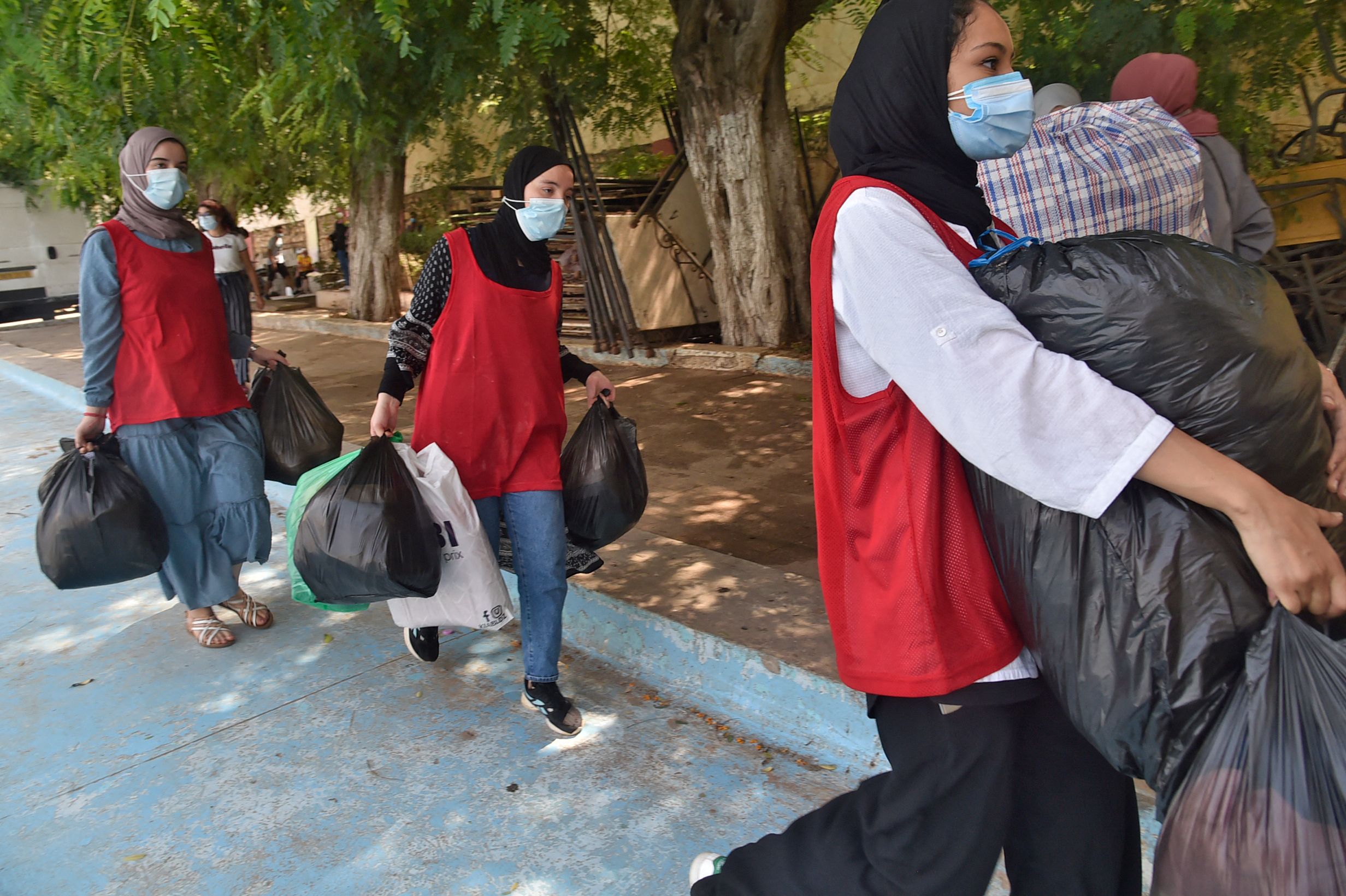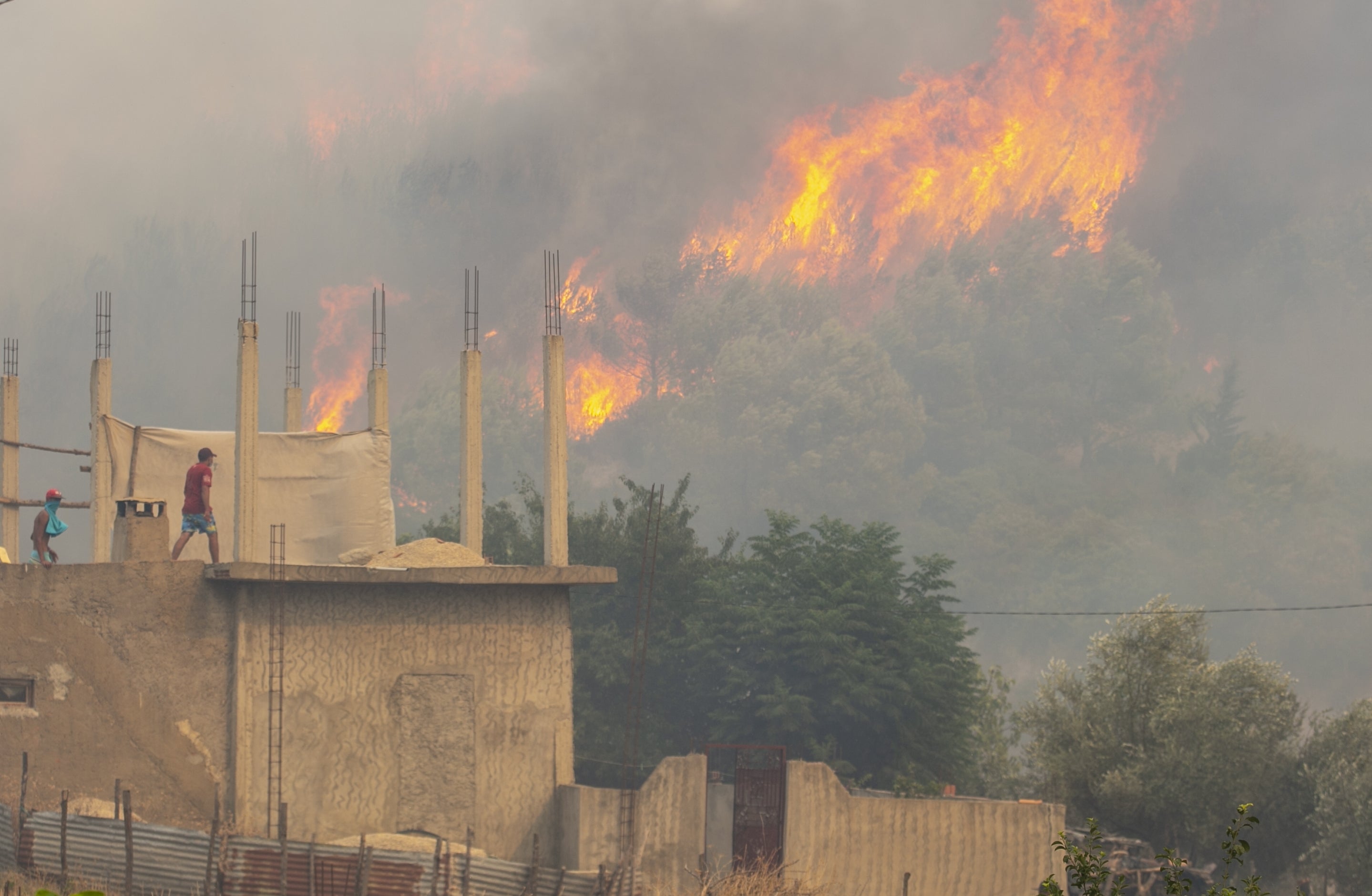‘I have nothing left’: Algeria commences three days of mourning amid claims wildfires caused by arsonists
Fires have broken out in the mountainous Kabylie region, east of the capital, and home to many of the country’s Amazigh community, writes Simon Speakman Cordall

Algeria commenced three days of mourning on Thursday after 69 people were killed by wildfires which ravaged parts of the country. Meanwhile in neighbouring Tunisia, record temperatures sparked blazes that have, so far, engulfed around 3000 hectares of forest, even though no fatalities have as yet been recorded.
Speaking on Wednesday, Algeria’s president, Abdelmadjid Tebboune, declared the mourning period for the “civil and military persons” who had lost their lives in the fire. Tunisia’s president, Kais Saied, has offered help, while also fighting potentially deadly fires on his own border. Appearing on state television earlier, Algeria’s prime minister, Ayman Benabderrahmane appealed for international help, saying that the government was already in talks with partners to hire planes to extinguish the fires. The region has no water-dumping aircraft.
Both the governments in Algiers and Tunis have suggested the multiple blazes may have been started deliberately, but have stopped short of providing details of who or why. Tunisia has dispatched civil protection units and the national guard to the northern area close to the Algerian border, where they continue to evacuate homes ahead of the spreading blaze.
In Algeria, fires have taken hold around the mountainous Kabylie region east of the capital; home to many of the country’s Amazigh ethnic minority, which continues to maintain a fraught relationship with the capital Algiers. For years, the government has been wary of Amazigh rights claims.
In a visit to Tizi Ouzou in the Kabylie region, Mr Benabderrahmane blamed the fires on arsonists. “We have formal, scientific evidence that these fires are of criminal origin, but for the moment, the most important is to extinguish them and above all, to take care of the population,” the prime minister said. In Tunisia, which is struggling with a political crisis of its own, authorities have also blamed the fires on man-made causes.
In Algeria at least, suspicions of outside interference have resulted in vigilante action being undertaken, with rumours swirling of unlicensed cars driven by mysterious strangers around the mountains gaining traction on social media.

Videos provided to The Independent of the villages around Tizi Ouzou show apocalyptic scenes, with fierce fires driving thick smoke across the mountainous landscapes. Speaking late on Wednesday night, Amilyas Khelifi, a young man from the village of Tizi Ghenif described the villagers’ efforts to combat the fires, with the nearest hospital in Tizi Ouzou already struggling with Covid cases from the region. Power cuts, due to the spread of the fire, had also become commonplace, he said.
“I left all my stock in my village and fled to Tizi Ouzou with my wife and three children,” Abdelhamid Boudraren, a shopkeeper from the village of Beni Yenni told agencies. “Luckily I own a flat in the centre of Tizi Ouzou where I’m holed up with my family and some neighbours.”
Forest fires in such conditions are far from unusual, and offer natural habitats the opportunity to shed dead plantlife and parasites. Nevertheless, with global warming playing an increasing factor in the frequency and ferocity of the fires, a naturally occurring opportunity has become a persistent blight.
In addition to the destruction of natural habitats, “the forest fires increase carbon dioxide in the atmosphere and contribute to the greenhouse effect and climate change,” Sami Dhouib, a project manager with the World Wildlife Fund in Tunis said. In addition, he pointed to the destruction wrought by the ashes from the fire, which would destroy the nutrients within the soil leaving it “erodible due to the (removal) of the vegetal cover, which will cause landslides and flooding,” he added.

Irrespective of the precise causes of the blaze, man-made or natural, high temperatures such as those covering the region are a growing phenomenon and, as a result, the likelihood of continued fires increases. In the same week as the Intergovernmental Panel on Climate Change warned of the “possible loss of entire countries” within the century as a result of unchecked global warming, Tunisia, Algeria, Turkey and Greece have experienced unparalleled wildfires.
On Tuesday, Tunis recorded its highest temperature ever, with the Meteorological Institute reporting a high of 48.9C, breaking the capital’s previous record of 46.8C, recorded in 1982. “With climate change, we are expecting, and are already seeing, more frequent and severe events, and will continue to do in the future,” a Met Office spokesperson told The Independent.
In Tizi Ouzou, as one of the villagers returned to his home which was destroyed by fire, he told AFP, “I have nothing left. My workshop, my car, my flat. Even the tiles were destroyed.”






Join our commenting forum
Join thought-provoking conversations, follow other Independent readers and see their replies
Comments